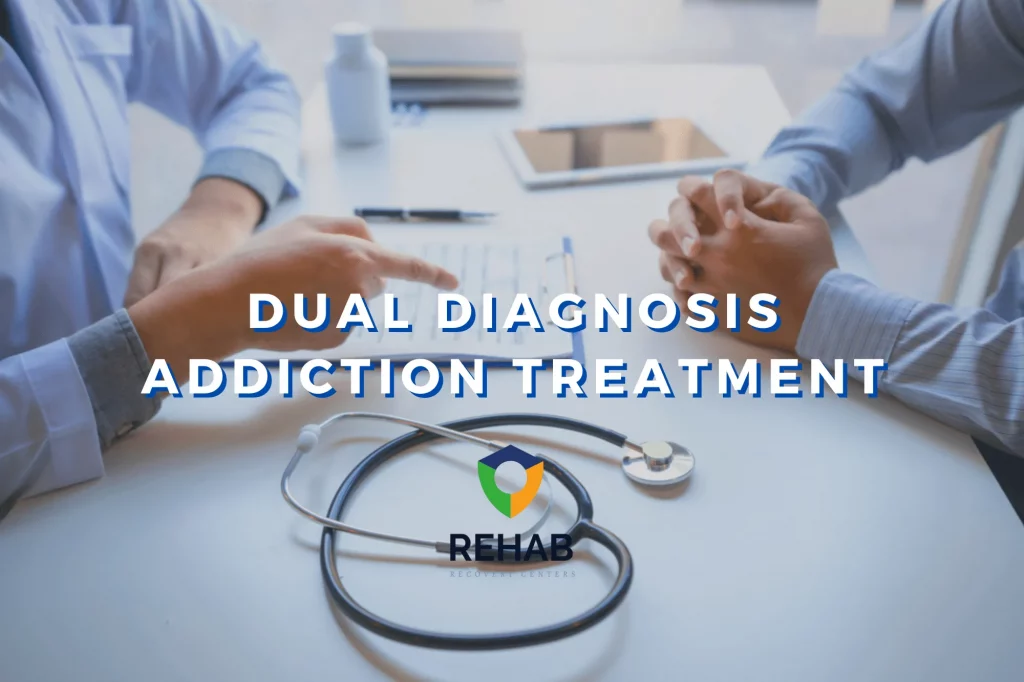Table of Contents
In 2018, it was estimated that around 9.2 million American adults struggled with both substance abuse and mental illness. Addiction can already be pretty tough to deal with, so when you add mental health issues on top of that, it can understandably become quite unmanageable.
Because of that, it’s always a good idea to seek professional help. While it’s certainly possible to quit drugs on your own, this is merely putting a bandage on things instead of truly healing.
Are you interested in hearing more about rehabilitation? Then here’s your complete guide to addiction treatment programs for a dual diagnosis.
What Is a Dual Diagnosis?
First of all, what exactly is a dual diagnosis?
As we’ve touched upon above, a dual diagnosis is when you’re battling with both a substance use disorder (SUD) and a mental health issue as well. In many cases, the mental illness can be the catalyst, as some people will try to self-medicate rather than seek professional help.
Around 50% of people who have a mental health issue will develop a SUD. And the opposite will happen as well; people with a SUD will have some type of mental health problem.
As you can see, it’s pretty common to have one with the other at the same time. In fact, when you have a dual diagnosis, the simultaneous occurrence can cause both to worsen at a much more rapid pace.
Some Common Mental Health Issues With Addiction
So what are some of the common mental health issues that can appear alongside addiction? They include:
- Attention-deficit hyperactive disorder (ADHD)
- Bipolar disorder
- Borderline personality disorder (BPD)
Obsessive-compulsive disorder (OCD) - Generalized anxiety disorder (GAD)
- Depression
- Post-traumatic stress disorder (PTSD)
- Schizophrenia
As you may have guessed, each of these mental illnesses come with their own unique sets of challenges. This means you’ll have to get a unique approach to treatment so you can address the root causes and truly, fully heal.
Why Do You Need a Special Type of Treatment for a Dual Diagnosis?
While the majority of rehab centers (if not all) do touch upon the mental aspect of addiction, some might not focus too much on it. When it comes to battling both a SUD and mental issue, treating just one won’t be effective, as the other will still linger and cause further issues and/or cause you to have a higher chance of relapse.
How Dual Diagnosis Treatment Rehab Can Help
By this point, you should feel that going to dual diagnosis treatment rehab is the best course of action. Here, you’ll get the assistance of trained and experienced professionals who can guide you to sobriety and better mental health.
Below are the things you can expect of rehabilitation when you decided to enroll.
Inpatient Treatment
When you go to inpatient treatment, you’ll spend 24/7 of your time there, which means you’ll eat and sleep there as well.
During your time at the rehab center, you’ll go through detox first under the care of medical professionals. They can monitor how it goes to ensure you’re safe and comfortable. This means they’re able to prescribe any necessary medications to lessen some symptoms that may end up being dangerous to your health or even life-threatening.
Once you’re done detoxing, you’ll proceed with actual rehab treatment. During this, you’ll meed with professional counselors who will discuss the source of your addiction with you.
If you don’t have a dual diagnosis before attending, then you might get one in rehab. Or if you already have a dual diagnosis, the counselor will work hard to address both your SUD and mental illness.
This is usually done through effective therapies like cognitive behavioral therapy (CBT). CBT is a type of talk therapy that’s effective for not only addiction, but also mental health issues.
In your time at inpatient treatment, you’ll also attend group therapy so you get a strong support group as you deal with your dual diagnosis.
Outpatient Treatment
A lot of what you experience in outpatient treatment will be very similar to inpatient treatment. However, the biggest difference is you don’t spend your entire day there. Instead, you only go to the center to receive and take medications, attend therapy, and any other alternative therapies you might choose to partake in.
Outpatient treatment is a lot cheaper and doesn’t require you to disrupt your busy schedule. If you have a good home environment, then this can be a great alternative choice. However, if you have a poor home environment, this will decrease your chances of success and increase your chances of relapse.
Understandably, not everyone has the luxury of taking off school, work, childcare, or other responsibilities. So going to outpatient treatment is still better than nothing, as you’ll still receive the help of professionals.
Aftercare
When transitioning back to your normal life, it can be extremely difficult to readjust. Aftercare allows you to continue some of the activities you participated in during your time in rehab, such as CBT, group therapy, art therapy, yoga, and meditation.
Check Out Addiction Treatment Programs Near You
Getting a dual diagnosis can be tough, but it doesn’t mean you can’t make it out on the other side. It just means you need a different approach to sobriety to others.
You can get this different and effective approach by checking in to rehabilitation. Here, medical professionals can help you with your co-occurring disorders. As a result, you’ll be able to get on the path to recovery for both your addiction and mental health issues.
Are you interested in addiction treatment programs near you? Then look for dual diagnosis treatment centers now. We also have a search function by city for more targeted searches.
Get Help Today
Don’t go through the process of recovery alone. There are people who can help you with the struggle you’re facing. Get in touch with one today.


